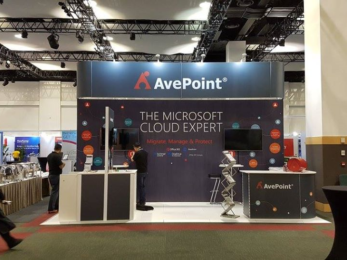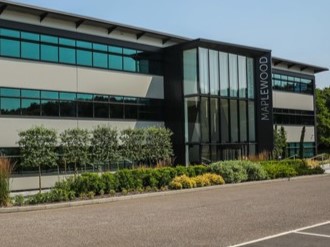 According to Beancounters at IDC, European IoT spending will climb to $227 billion in 2023, despite market uncertainty.
According to Beancounters at IDC, European IoT spending will climb to $227 billion in 2023, despite market uncertainty.
According to the Worldwide Internet of Things Spending Guide published by International Data Corporation (IDC). IoT-related spending is expected to expand at a five-year compound annual growth rate (CAGR) of 11 per cent, reaching almost $345 billion by 2027.
IoT development in Europe reflects enterprises’ evolving digital transformation investment objectives related to cost reduction, process streamlining, automation, and enhanced customer experience.
There are varying dynamics in regional markets. Central and Eastern European (CEE) organisations’ investments, for example, remain significantly below the European market average, with expected single-digit increases over the forecast period. In the last three years, many investments were put on hold in CEE, due to the various challenges related to the pandemic, the war in Ukraine, and the overall pressured macro-economic environment.
As IoT has proven to be integral to cost reduction, process optimisation, automation, and enhanced management and monitoring capabilities, IDC expects investments to accelerate by the end of the forecast period.
From an overall industry perspective, European IoT spending will be driven by investments from manufacturing, utilities, and professional services organisations.
Prominent use cases will include production asset management, distribution automation, and infrastructure for smart buildings. The fastest adoption of IoT will be seen across use cases such as irrigation management in the resources industry and fleet management in transport.
In terms of technology, modules and sensors will continue to drive IoT-related spending, followed by related services such as industrial maintenance to support the ongoing operation of device hardware (“things”), vertical business process outsourcing services, infrastructure as a service, and data as a service.
Low power wide area networks (LPWANs) will see the fastest-growing investments and will be a critical IoT area for telecom providers in the next few years. Spending on analytics software will also increase, as organisations strive to turn data collected by connection endpoints into actionable insights.
IDC’s European Data & Analytics Team research analyst Alexandra Rotaru said that due to the uncertain macroeconomic context, European organisations are expected to continue feeling pressure on budgets, with additional investments restrained in the short and medium term.
“However, IoT will remain a critical tool for improving performance and efficiency and increasing automation capabilities. It will continue to be a key investment area, helping organisations to reduce costs and enhance productivity despite challenges.”
 TD SYNNEX announced that Andy Gass, chief digital officer global, has decided to retire after January 2024.
TD SYNNEX announced that Andy Gass, chief digital officer global, has decided to retire after January 2024. According to Beancounters at IDC, European IoT spending will climb to $227 billion in 2023, despite market uncertainty.
According to Beancounters at IDC, European IoT spending will climb to $227 billion in 2023, despite market uncertainty. A new study from Juniper Research has found that the value of payment transactions powered by stablecoins will exceed $187 billion globally by 2028, up from $53 billion in 2023.
A new study from Juniper Research has found that the value of payment transactions powered by stablecoins will exceed $187 billion globally by 2028, up from $53 billion in 2023. A badly redacted Microsoft document reportedly revealed that the vendor’s Azure cloud server business revenue in the 2022 fiscal year generated half the revenue of rival Amazon Web Services.
A badly redacted Microsoft document reportedly revealed that the vendor’s Azure cloud server business revenue in the 2022 fiscal year generated half the revenue of rival Amazon Web Services. A new study from Juniper Research has found that operator-billed revenue from carrier billing spend will reach $13.8 billion by 2027; rising from $9.3 billion in 2023.
A new study from Juniper Research has found that operator-billed revenue from carrier billing spend will reach $13.8 billion by 2027; rising from $9.3 billion in 2023. Salesforce has unveiled plans to invest $4 billion its UK business over the next five years.
Salesforce has unveiled plans to invest $4 billion its UK business over the next five years. SaaS outfit AvePoint has updated, enhanced and continued investments in its channel business with the expansion of the AvePoint Certification Programme Partner Locator.
SaaS outfit AvePoint has updated, enhanced and continued investments in its channel business with the expansion of the AvePoint Certification Programme Partner Locator. The UK government is jolly pleased about ChatGPT creator OpenAI’s decision to to open its first office outside the United States in London.
The UK government is jolly pleased about ChatGPT creator OpenAI’s decision to to open its first office outside the United States in London. TD Synnex’s second-quarter numbers suffer from PC market decline.
TD Synnex’s second-quarter numbers suffer from PC market decline. TD Synnex CEO Rich Hume said: “Our unparalleled, end-to-end line card of products and services allowed us to realise growth in Advanced Solutions and high-growth technologies, as the industry continued to be impacted by post-pandemic declines in demand for PC ecosystem products.”
TD Synnex CEO Rich Hume said: “Our unparalleled, end-to-end line card of products and services allowed us to realise growth in Advanced Solutions and high-growth technologies, as the industry continued to be impacted by post-pandemic declines in demand for PC ecosystem products.” Cisco wants to buy the UK-based privately held broadband network monitoring company SamKnows.
Cisco wants to buy the UK-based privately held broadband network monitoring company SamKnows. New research has found that voice authentication systems are vulnerable to attacks from malicious AI.
New research has found that voice authentication systems are vulnerable to attacks from malicious AI. Integration platform-as-a-service outfit Celigo partnered with Bring IT to further expand its best-in-class automation technology into the Europe, Middle East and Africa (EMEA) and Latin American (LATAM) regions.
Integration platform-as-a-service outfit Celigo partnered with Bring IT to further expand its best-in-class automation technology into the Europe, Middle East and Africa (EMEA) and Latin American (LATAM) regions.
 Scalable Neural Processing Unit (NPU) semiconductor designer Expedera today announced the opening of its new European regional engineering development centre in Bath.
Scalable Neural Processing Unit (NPU) semiconductor designer Expedera today announced the opening of its new European regional engineering development centre in Bath.
 Security outfit Veracode launched its new Veracode Velocity Partner Programme in the EMEA region.
Security outfit Veracode launched its new Veracode Velocity Partner Programme in the EMEA region.
 Google has accused Microsoft of using its dominant position to trap customers into contracts within its Azure cloud server business.
Google has accused Microsoft of using its dominant position to trap customers into contracts within its Azure cloud server business.




